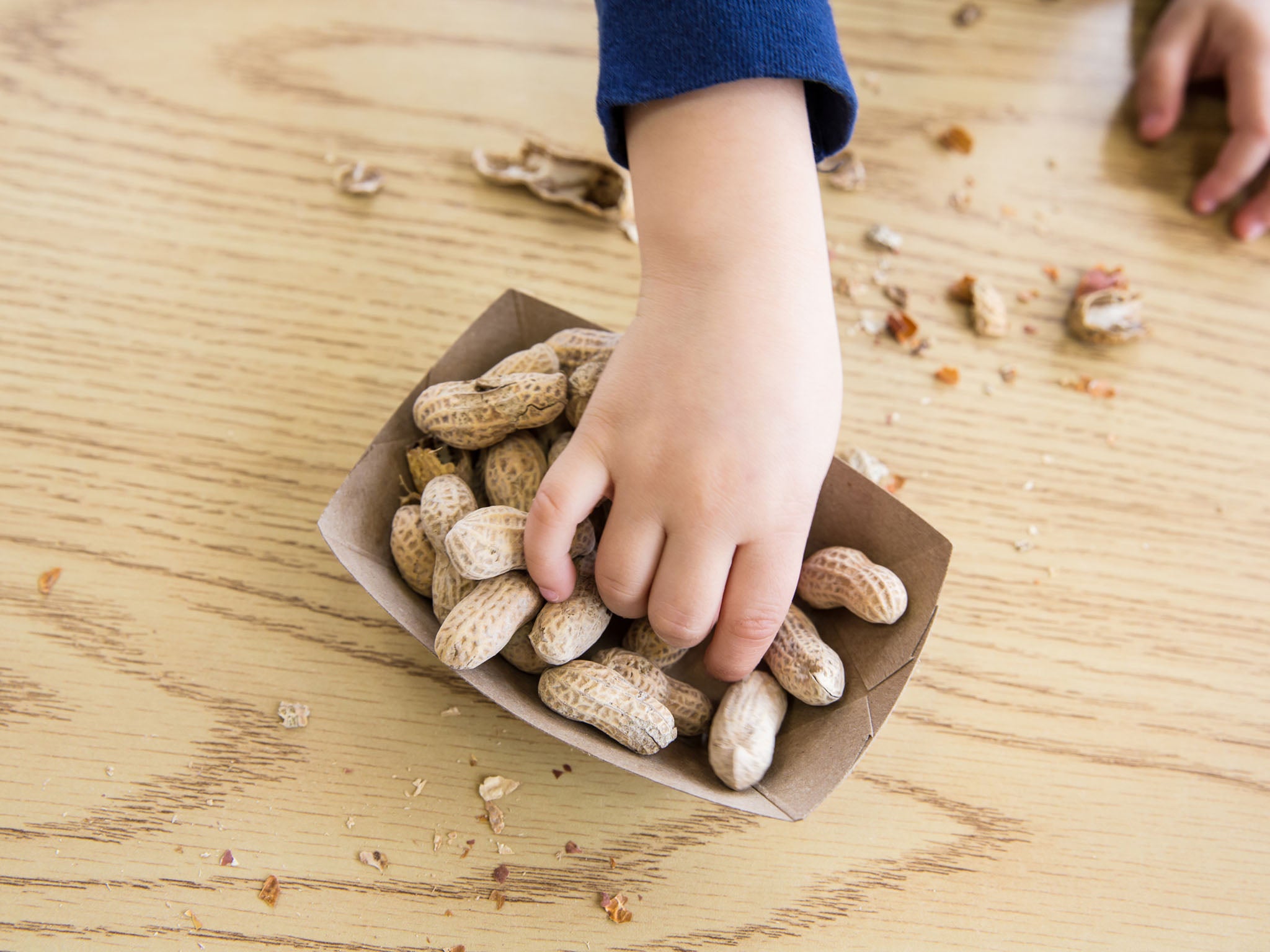A landmark study that proved feeding peanut products to young babies could prevent the development of life-threatening allergies has made a big difference a decade on.
About 60,000 children have avoided developing peanut allergies after guidance first issued in 2015 upended medical practice by recommending introducing the allergen to infants starting as early as four months, a new study published Monday in the medical journal Pediatrics suggests.
“That’s a remarkable thing, right?” said Dr David Hill, an allergist and researcher at Children’s Hospital of Philadelphia, and author of a study.
Hill and colleagues analyzed electronic health records from dozens of pediatric practices to track diagnoses of food allergies in young children before, during and after the guidelines were issued.
“I can actually come to you today and say there are fewer kids with food allergies today than there would have been if we hadn’t implemented this public health effort,” he added.
The researchers found that peanut allergies in children ages 0 to 3 declined by more than 27 percent after guidance for high-risk kids was first issued in 2015 and by more than 40 percent after the recommendations were expanded in 2017.
The effort hasn’t yet reduced the overall increase in food allergies in the U.S. in recent years. About 8 percent of children are affected, including more than 2 percent with a peanut allergy.

Peanut allergy is caused when the body’s immune system mistakenly identifies proteins in peanuts as harmful and releases chemicals that trigger allergic symptoms, including hives, respiratory symptoms and, sometimes, life-threatening anaphylaxis.
For decades, doctors had recommended delaying feeding children peanuts and other foods likely to trigger allergies until age 3. But in 2015, Gideon Lack at King’s College London published the groundbreaking Learning Early About Peanut Allergy, or LEAP, trial.
Lack and colleagues showed that introducing peanut products in infancy reduced the future risk of developing food allergies by more than 80 percent. Later analysis showed that the protection persisted in about 70 percent of kids into adolescence.
The study immediately sparked new guidelines urging early introduction of peanuts — but putting them into practice has been slow.
Only about 29 percent of pediatricians and 65 percent of allergists reported following the expanded guidance issued in 2017, surveys found.
Confusion and uncertainty about the best way to introduce peanuts early in life led to the lag, according to a commentary that accompanied the study. Early on, medical experts and parents alike questioned whether the practice could be adopted outside of tightly controlled clinical settings.
The data for the analysis came from a subset of participating practice sites and may not represent the entire U.S. pediatric population, noted the commentary, led by Dr. Ruchi Gupta, a child allergy expert at Northwestern University.

However, the new research offers “promising evidence that early allergen introduction is not only being adopted but may be making a measurable impact,” the authors concluded.
Advocates for the 33 million people in the U.S. with food allergies welcomed signs that early introduction of peanut products is catching on.
“This research reinforces what we already know and underscores a meaningful opportunity to reduce the incidence and prevalence of peanut allergy nationwide,” said Sung Poblete, chief executive of the nonprofit group Food Allergy Research & Education, or FARE.
The new study emphasizes the current guidance, updated in 2021, which calls for introducing peanuts and other major food allergens between four and six months, without prior screening or testing, Hill said. Parents should consult their pediatricians about any questions.
“It doesn’t have to be a lot of the food, but little tastes of peanut butter, milk-based yogurt, soy-based yogurts and tree butters,” he said. “These are really good ways to allow the immune system exposure to these allergenic foods in a safe way.”
Tiffany Leon, 36, a Maryland registered dietician and director at FARE, introduced peanuts and other allergens early to her own sons, James, 4, and Cameron, 2.
At first, Leon’s own mother was shocked at the advice to feed babies such foods before the age of 3, she said. But Leon explained how the science had changed.
“As a dietician, I practice evidence-based recommendations,” she said. “So when someone told me, ‘This is how it’s done now, these are the new guidelines,’ I just though, OK, well, this is what we’re going to do.”





